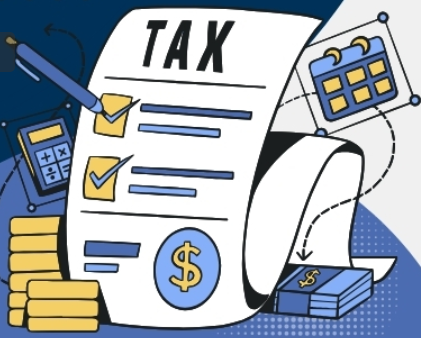
San Jose freelancers often struggle with deciding whether to pay their taxes quarterly or wait until the end of the year. Both methods affect cash flow, compliance, and risk of penalties. Understanding how structured payments work and how strategic tax planning supports them can help freelancers make informed decisions that safeguard their income and peace of mind.
Understanding Quarterly Payments
Quarterly estimated payments spread tax obligations across the year. They align tax payments with actual earnings, reducing the risk of underpayment penalties. A tax consultant helps freelancers calculate realistic estimates based on projected income, business expenses, and prior-year liabilities. This approach supports better cash flow management and prevents a large, unexpected bill at year-end. Consistent payments also reflect positively on financial discipline, which can benefit freelancers seeking loans or credit lines.
Considering Annual Payments
Paying taxes annually might seem simpler, but it carries a higher risk. Freelancers who underpay throughout the year often face significant penalties and interest from the IRS. Waiting until year-end can also create budgeting stress, especially for those with fluctuating income. Without regular tax and accounting services, income tracking errors are more likely, increasing the chance of filing inaccuracies. A personal tax accountant can help assess if annual payments align with a freelancer’s earning pattern, though most professionals recommend quarterly estimates to avoid costly surprises.
How San Jose Tax Planning Supports Compliance
Strategic tax planning integrates income forecasting, expense tracking, and deduction planning into one cohesive system. This process helps freelancers determine accurate quarterly amounts while keeping enough cash on hand for operational needs. Regular reviews with a certified public accountant near you ensure payments reflect real-time income changes. By combining forecasting tools with expert oversight, freelancers can avoid penalties, maintain compliance, and build financial confidence year-round.
Additional Benefits of Regular Payment Systems
Freelancers who adopt structured payment schedules also strengthen their overall business health. Consistent payments support accurate bookkeeping, making audits less stressful and financial reports more reliable. Strong records also simplify individual tax filing by reducing last-minute document collection. When freelancers work with experienced professionals, such as a tax planning consultant, they receive guidance on setting aside funds, adjusting payments during income shifts, and maximizing deductions.
Confident Filing with Nidhi Jain CPA
We at Nidhi Jain CPA help freelancers determine the best tax payment strategy, offering expert guidance on quarterly estimates, deduction planning, and compliance. With tailored tax planning in San Jose, freelancers can reduce the risk of penalties and maintain smooth financial operations. By blending accurate forecasting with strong reporting systems, Nidhi Jain CPA empowers freelancers to approach tax season with clarity and confidence.




